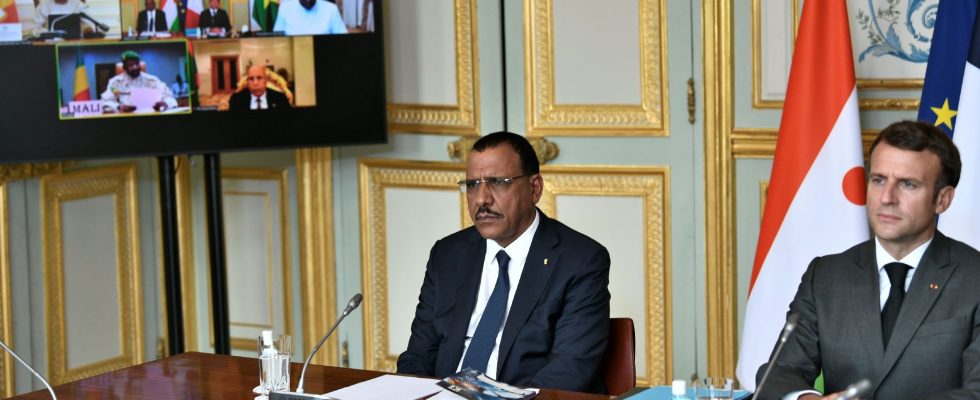It is an understatement to say that the fall of Nigerien President Mohamed Bazoum, overthrown by a putsch, is a blow for France. The Elysée considered him one of the last “frequent” partners in the area, after the coups that led to the departure of French troops from Mali and Burkina Faso. Last June, the Nigerien leader took part in the Summit for a new global financial pact, in Paris. Six months earlier, he had led and succeeded in raising funds for an economic and social development plan for his country.
But these passages repeated by the Elysée were double-edged. Because they gave the Nigerien leader an image of a “good student” that risked weakening his internal position, in the midst of rising anti-French feelings in the region. “It reinforced the idea, among those who thought that way, that he was a puppet of France,” said Nigerian researcher Abdourahmane Idrissa, from the University of Leiden (Netherlands). The leader has always been careful, saying that he was “not the valet of France”. But he also claimed to have “no complex to claim [son] friendship” with Paris.
In the continuity of the good understanding forged under his predecessor, Mahamadou Issoufou, Mohamed Bazoum had thus accepted that his country become the main French rear base in the fight against jihadism in the Sahel, after the end of the Barkhane anti-terrorist operation in 2022, under pressure from the Malian junta, then the withdrawal of the special forces of Operation Saber from Burkina Faso. In all, more than 1,500 French soldiers are deployed in Niger, where five Reaper drones are operating, capable of carrying out strikes over a large territory, in support of ground units.
“Macron has strengthened the power of the Nigerian president”
More cautious in its communication than it had been in Mali, Paris insisted that this was support for the Nigerien forces. When ending Barkhane, Emmanuel Macron explained that the intervention in the Sahel thus passed “from a military operation to a cooperation mechanism”. It remains to be seen how this was experienced within the Nigerien army, support for the putschists, whose demands were not clear as to whether or not to extend the partnership with France as with the United States, which has a large surveillance base in Agadez, in the north of the country. Didn’t the head of the junta, General Tchiani, call for “genuine collaboration with Burkina Faso and Mali”?
“By supporting Bazoum, Macron has reinforced the power of the Nigerien president, already excessive, his party having destroyed Nigerien political life, says Abdourahmane Idrissa. In the absence of having expressed himself in the political field, the expression of an opposition s Other fields were found, such as that of the army.” For Mohamed Bazoum, the path had always been tenuous: he had escaped two putsch attempts, in a country which had known four since its independence, before that of Wednesday July 26. With its overthrow, France loses an unwavering ally. Relations with the new masters of Niger promise, at best, to be more distant.
